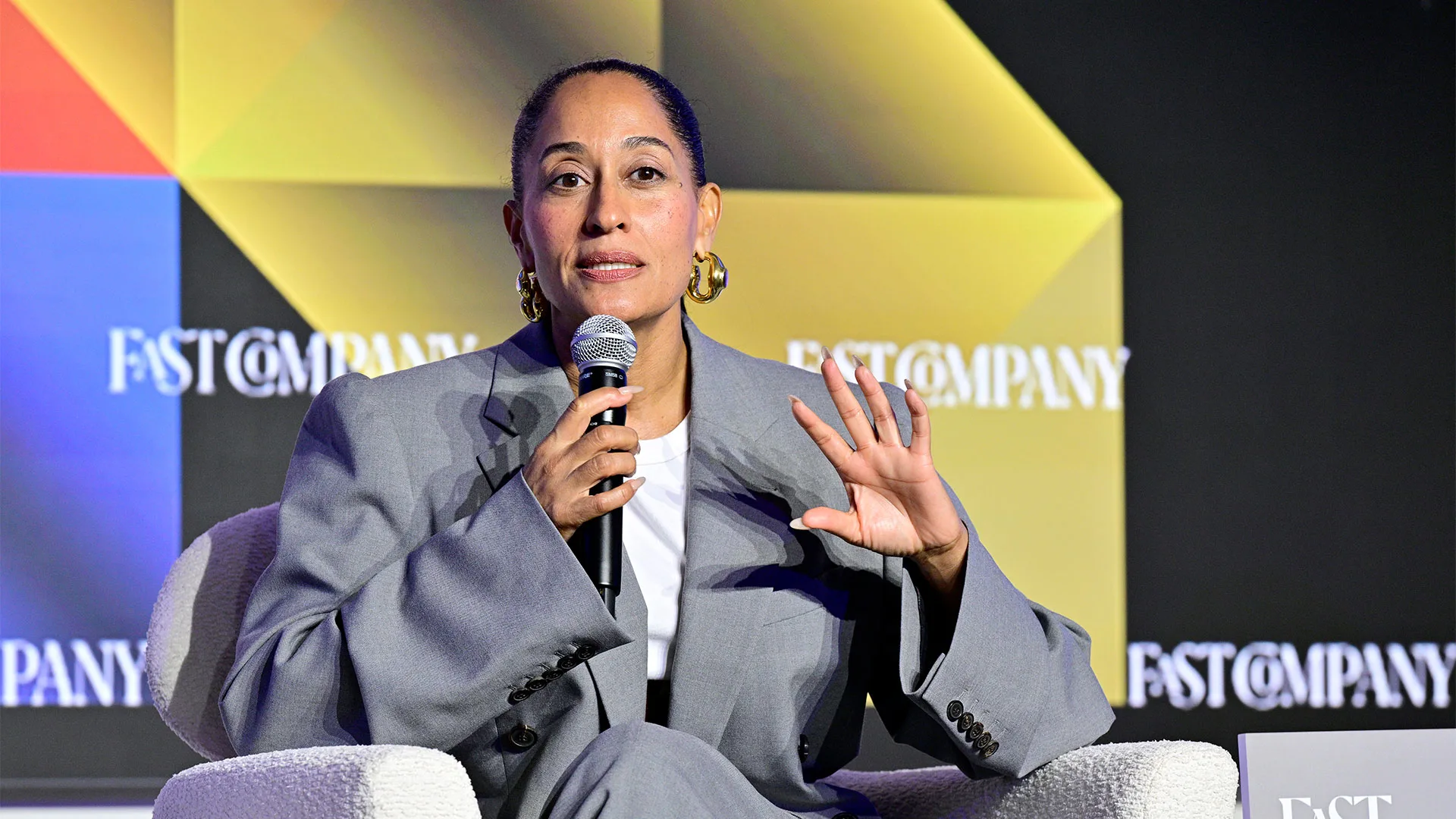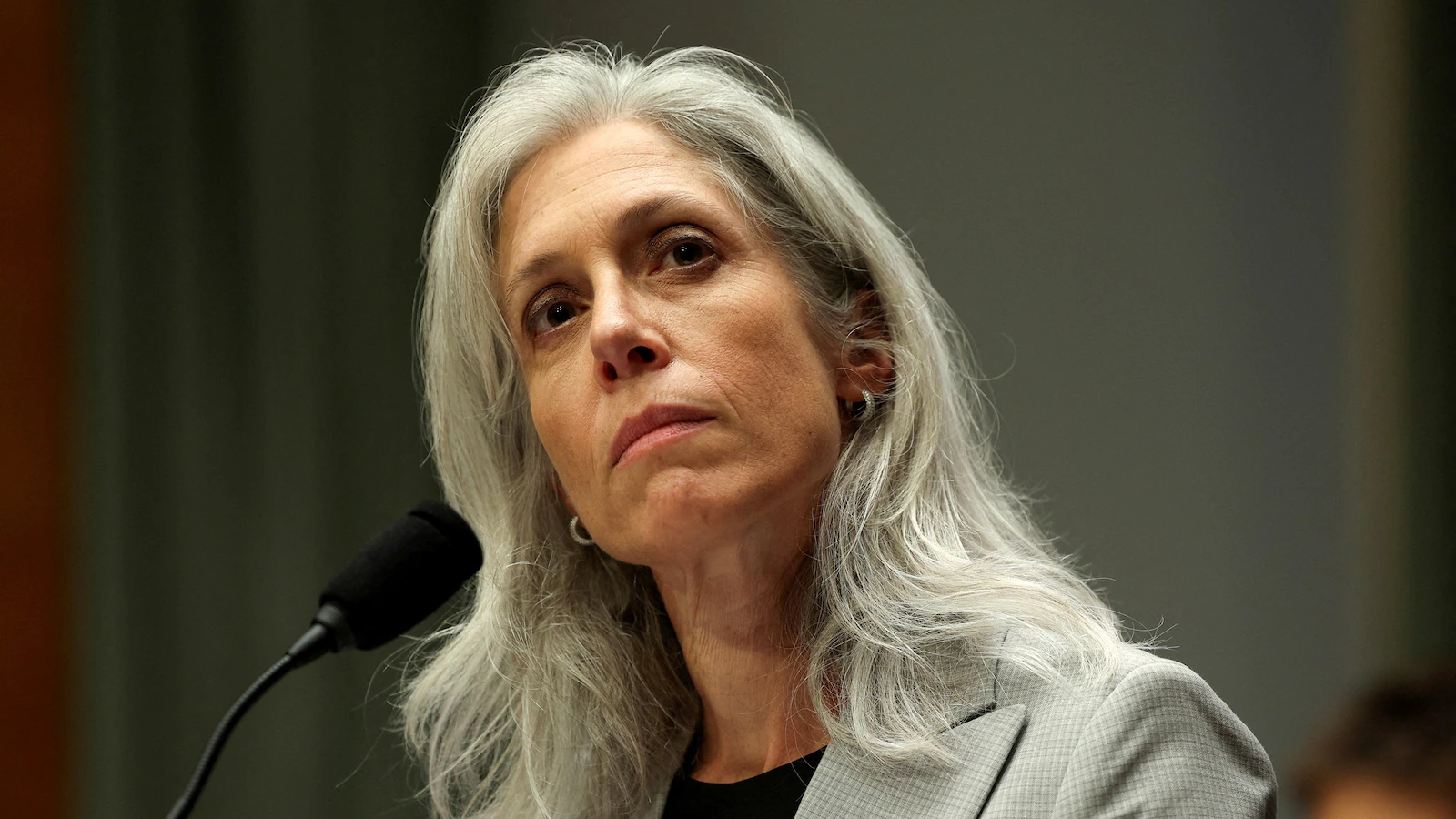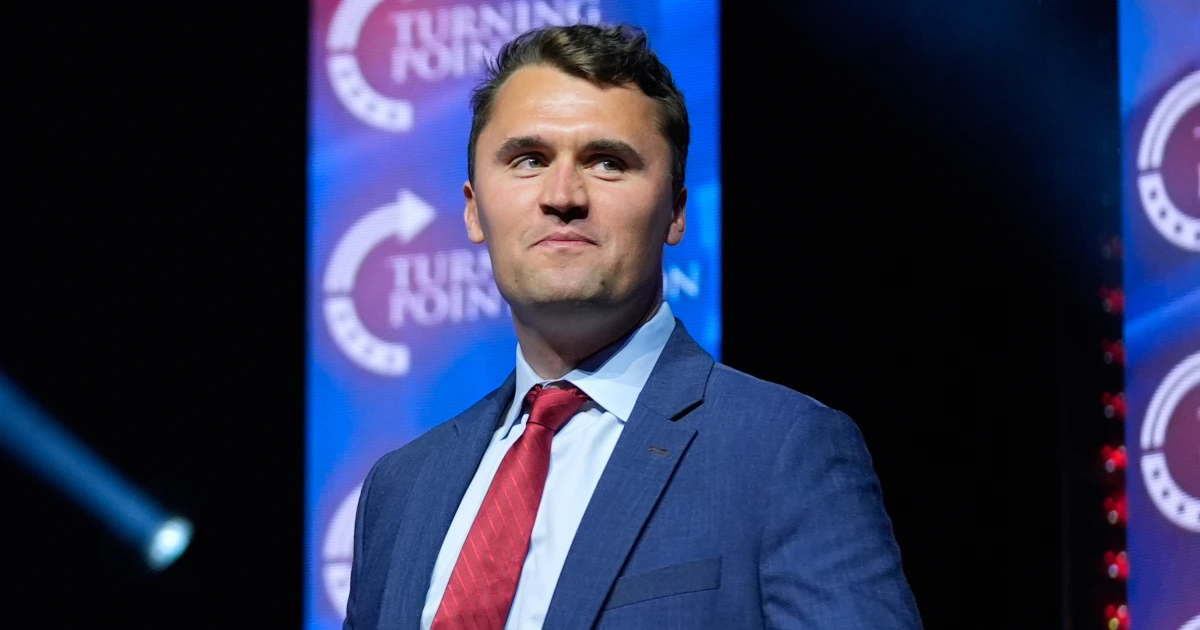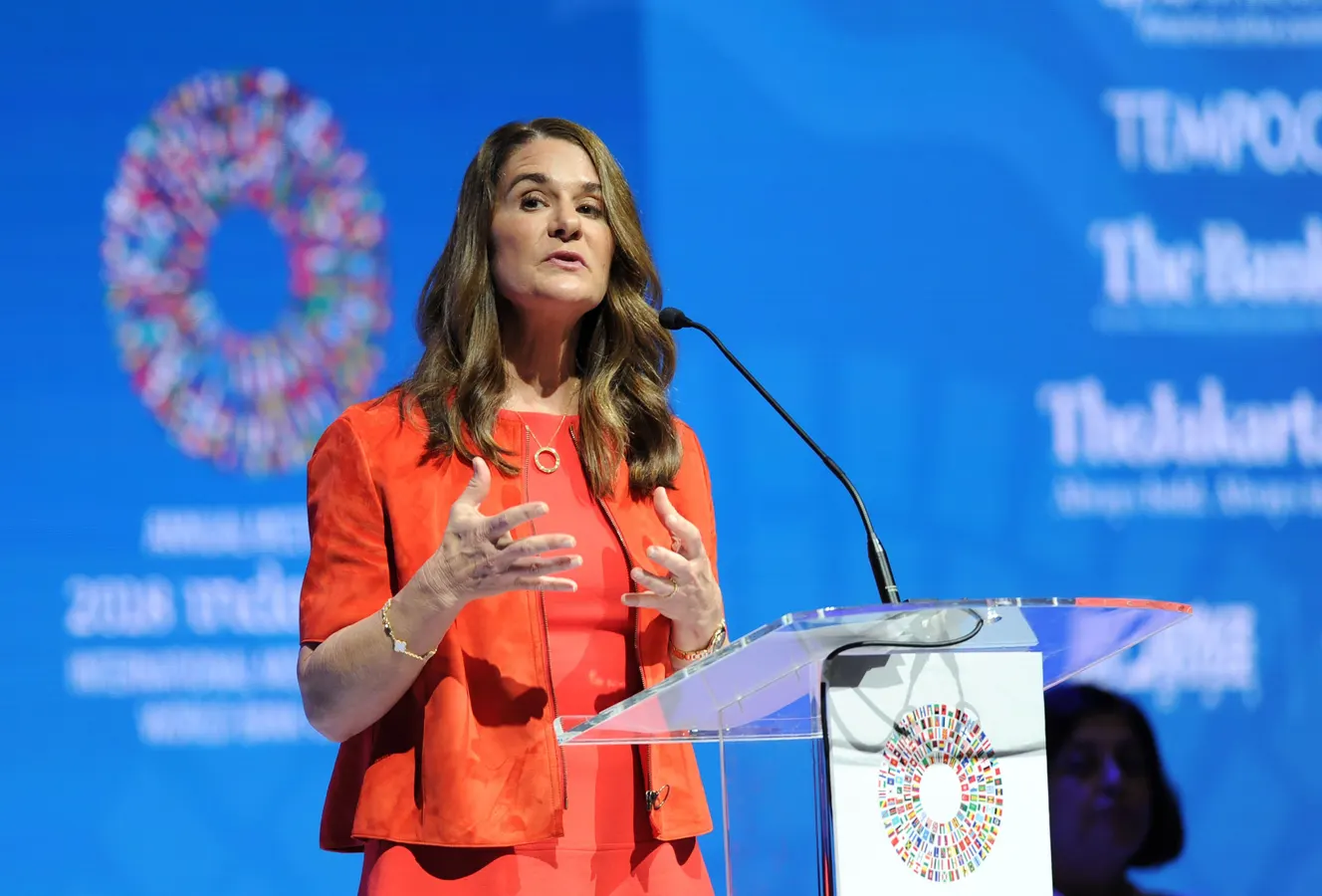Roku’s big break: Tracee Ellis Ross on why “Solo Traveling” became a hit-and what that reveals about humanity

The streaming wars have seen giants of entertainment—Netflix, Disney, Warner Bros. Discovery—duke it out for consumers, each with a fast-growing library of original movies and TV to keep viewers coming back. Roku is a bit of a dark horse in this race. But the platform’s recent hit series Solo Traveling with Tracee Ellis Ross suggests the scrappy underdog might just become a real contender.
At the Fast Company Innovation Festival in New York this week, Roku head of originals Brian Tannenbaum told the crowd it all started with a text message. Ross’s agent sent Tannenbaum just a handful of words: “Tracee Ellis Ross. Solo travel show.” It was enough.
You only need to hear Ross speak once to know why.
The daughter of legendary Motown singer Diana Ross, a theater graduate from Brown University, and an eight-year veteran of hit comedies Girlfriends and Black-ish, Ross knows how to thrill audiences.
Subscribe to the Daily newsletter.Fast Company’s trending stories delivered to you every day
Privacy Policy
|
Fast Company Newsletters
“It’s television—you want to give them a show, you know?” she said on stage at the festival. “You want a belt, you want a shoe, you want to give ’em a little razzle-dazzle.”
The show premiered on the free, ad-funded Roku Channel in July. Over three episodes, Ross journeys solo across Morocco, Mexico, and Spain—schlepping four checked bags through busy airports; seeking serenity in the sound of birds chirping and winds whistling between trees; and quipping away the awkwardness of dining in a restaurant as a party of one.
It’s since become Roku’s most-watched unscripted original series.
A catalyst for magic
That’s a big deal for Roku, which is known for hooking up streaming devices, but less for making art itself.
On paper, Solo Traveling had a fitting recipe for a brand that—as far as The Roku Channel goes—is perhaps still on the riverbanks of mainstream. It blends a quirky host with the premise of going it alone—and it opts, daringly, to do this all unscripted.
Something clicked with its timing, too. Solo Traveling has struck a nerve today, five years after the isolation of the COVID pandemic, when anxiety over the economy, politics, and climate change is heightened, and a loneliness epidemic persists. The zeitgeist feels more doom-and-gloom than ever—and there’s desperation for escapism.
Is that why the show took off?
In the unscripted space, “the best shows are the ones you can see yourself in,” says Tannenbaum. What would it be like if I was singing on American Idol? Or if I were on an island, like Survivor? Or, if I were traveling solo?”
Throw in a dynamite host, and the power of top-notch production, engineering, marketing teams, and “when those catalysts combine, that’s when you get the magic,” he adds.
advertisement
Ross has a different take on the appeal of traveling alone. “If you’re not waiting for a certain thing, or a certain person, to go out and live your life, what would that look like?” she asks. “If you’re not allowing culture and society and the norms to tell you who you should be, what would you be doing?”
She isn’t afraid to be honest: For Ross, flaunting her fashion wardrobe plays a major role—hence the four checked bags.
“I will never stop loving clothing and buying clothing,” she says, “and travel is an opportunity for me to adorn myself and create a sense of joy and beauty for myself out in the world.”
Seeing a brave new world
In 2018, Ross added “entrepreneur” to her resume by founding Pattern Beauty, a hair care line designed for natural hair that’s been picked up by retailers like Sephora, Ulta, Target, and Macy’s.
She’s also been vocal about staying single into her 50s. “I don’t have children, but I made a company,” she says. “We all get lonely. It’s not evidence that my life is broken. It is evidence that I am a human being.”
She added, “I wanted to bring some of that forward [in the show] because there must be some examples that are between Joan of Arc and cat ladies . . . And I have worked very hard to become the badass professional that I am.”
Meanwhile, Solo Traveling was just as much a foray for Roku as it was for Ross. Founded by an ex-Netflixer in 2002, the company became synonymous with cord-cutting, dominating that transient moment after consumers began ditching cable but before the technology to screencast from mobile apps existed.
Its first “box,” released in 2008, was revolutionary, allowing users to play Netflix on TVs via the internet. Today, Roku is a $15 billion company that’s cornered the market on streaming TV operating systems, reaching 90 million American households. But the focus its own content came later.
The Roku Channel debuted in 2017, but Roku didn’t start making original content until 2021 (after it bought the library from the defunct streaming service Quibi). In August, it ventured into streaming services with Howdy, a $2.99-a-month subscription.
For now, both Roku and Ross are just exploring. At one point in Solo Traveling, Ross muses, “Not having long relationships, not having children, has allowed me to explore things of my own humanity . . . It has deposited me here, at 52, in an experience filled with joy, loneliness, grief, delight—all of it.”
“It’s a reflection of what I care about in the world,” she said at the festival. “And I don’t mean me. I mean the idea that we all get to craft our own lives, that we get to live our lives on our own terms . . . It’s somebody telling the truth.”



